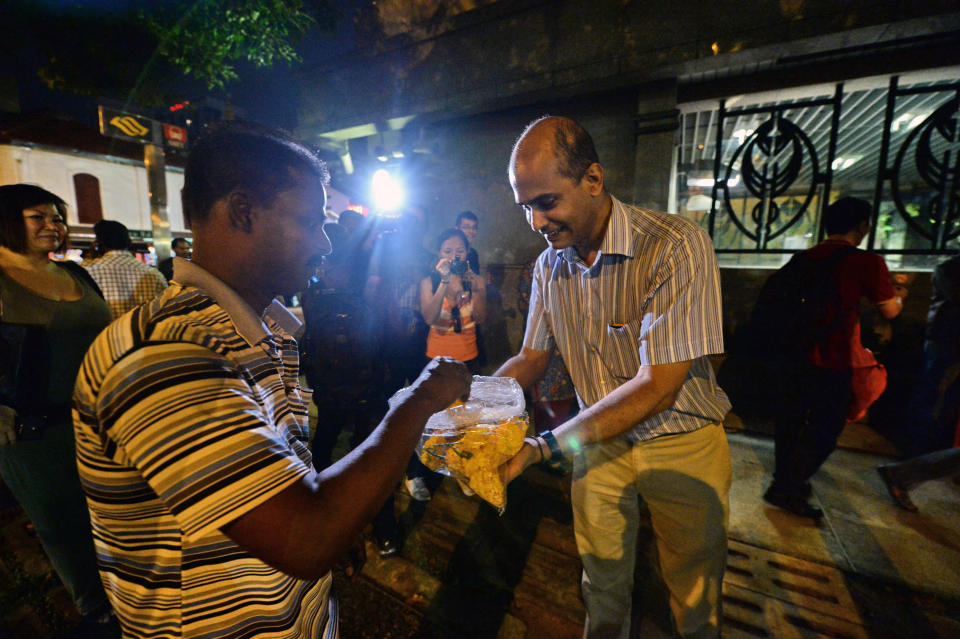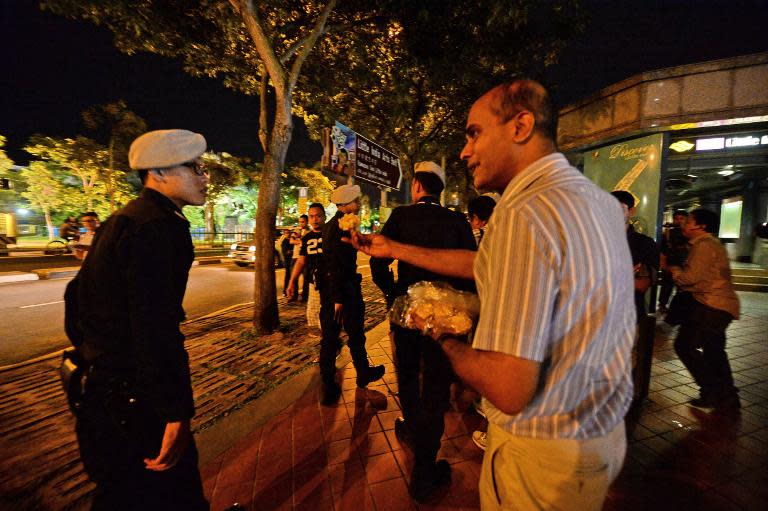COMMENT: Did deported workers deserve to have their time in court?
Kirsten Han is a Singaporean blogger, journalist and filmmaker. She is also involved in the We Believe in Second Chances campaign for the abolishment of the death penalty. A social media junkie, she tweets at @kixes. The views expressed are her own.
COMMENT
The riot in Little India was short-lived, and clean-up has begun. Not just the clearing of the physical space – which was done that same night – but also the rounding up of culprits and meting out of punishment.
Around 200 men have been given police advisories and warned to behave themselves. Another 53 were issued with police warnings and repatriated, never to be allowed back into Singapore.
A further 32 were charged in court. Seven of them later had their charges withdrawn and were given discharges amounting to acquittal by the court, but four of those were given police warnings and deported anyway.
This flurry of repatriations has alarmed activists. Workfair Singapore issued a statement: “The Controller of Work Passes should not have arbitrary powers to revoke work passes without the right of appeal, or the Police Commissioner to determine culpability. Criminal charges should be tried in court which is the constitutionally appropriate forum for their adjudication.”
This response provoked strong reaction among some Singaporeans, and once again activists such as those from Workfair found themselves accused of caring for migrant workers more than they do Singaporeans.
A letter published by TODAYonline lamented the lack of concern for Singaporeans such as the bus timekeeper, ambulance driver and policemen. “Would he [referring to Jolovan Wham from Workfair] feel Singaporeans’ anxiety over security issues and related matters?” the writer demands.
But here lies the crucial distinction: the criticism of the manner in which the migrant workers were repatriated is not merely motivated by sympathy. Activists, while often faced with heart-wrenching stories, are not just bleeding hearts. Behind the criticism lies a much bigger issue: that of access to justice and due process.
There is no question that those who have participated in the riot should be punished -- and rightly so. No activist is saying that everyone should be released and given a hug for their trouble. However, their guilt should be determined in a court of law where all the evidence from prosecution and defence has been laid out.
Deportation is a serious action, especially when the individual will never be able to return to Singapore again. The workers who have now lost their livelihood (as well as their best chance of earning back the fees they paid to employment agents) did not even have the chance to appeal the decision made.
This might be completely lawful, but critics have a point when they point out the injustice of such a system. In this case, the migrant workers' culpability and guilt have been assumed and the punishment dished out without them ever getting to appeal the decision or present their side of the story to a judge.
This is even more worrying when taking into consideration Police Commissioner Ng Joo Hee's answer to The New Paper when asked about repatriation:
Q: Why are those repatriated not given a trial or charged?
A: If the evidence was good enough to charge them in court, the police would have done so. The question of whether there should be a trial is moot.
The police commissioner's answer suggests that the evidence was not good enough to charge the men in court. Yet they have been deported anyway. The same goes for those who had their charges withdrawn, but were also punished with repatriation.
This does not make the discussion of trials moot. It makes the discussion of trials of absolute importance. Regardless of what the law says, it is problematic that the workers did not have the chance to defend themselves or have their culpability determined in a court of law before they were so heavily punished.
Where is the check and balance in such a system where "undesirable" foreign workers can be deported without a chance of appeal?
These are not questions that only matter to migrant workers. They matter to everyone who cares about justice and due process in Singapore. When activists bring them up, it is not because they love migrant workers more than Singaporeans – a childish argument if there ever was one – but because such issues highlight bigger institutional problems.
It's not about sympathy.
We don't have to understand or approve of the actions of the accused.
We may not even like the men. We're not obliged to. But we are obliged to ensure that they have access to justice.



